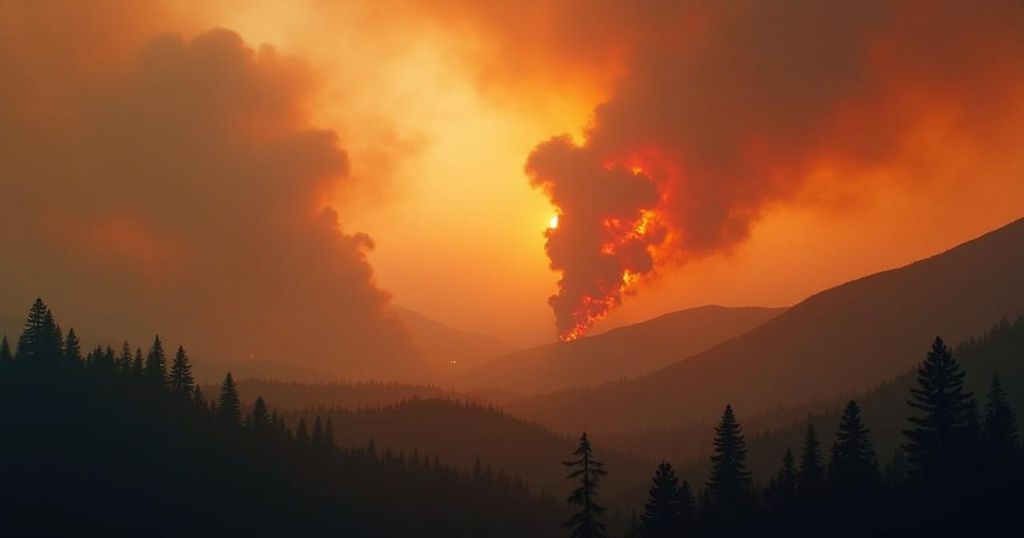The Urgent Cry of a Continent: Wildfires Ravage South America
Recent wildfires across South America, particularly in regions like Rondônia, Brazil, and Paraguay, have caused widespread destruction and health crises amidst a backdrop of climate change and human exploitation of resources. Officials report severe air quality issues, thousands of hectares of land destroyed, and emergency declarations in several countries. The situation highlights the urgent need for global awareness and action to preserve the environment and support affected communities.
The anthem of Rondônia, a state in Brazil that encompasses a significant portion of the Amazon rainforest, glorifies its once-clear blue skies. However, recent months have seen the skies covered in smoke due to widespread wildfires, primarily instigated by human actions. These fires have significantly affected regions spanning from Ecuador to Paraguay, with the aftermath being notably dire in Porto Velho, the capital of Rondônia. Passenger planes have struggled to land, schools have suspended operations, and medical facilities, such as a polyclinic managed by Dr. Lilian Samara de Melo Lima, have reported an influx of patients experiencing respiratory disorders and other ailments caused by the smoke. Dr. Lima recalls the alarming increase in fire activity this year, attributing the crisis to a reckless exploitation of previously untouched regions, now facing severe ecological harm. Health secretary Marilene Penati articulated the urgent situation, saying the residents of Porto Velho are “breathing in so much detritus.” Unfortunately, this grim picture is not confined to Brazil; rather, it extends across South America, with climate phenomena, including El Niño and broader climate change, aggravating the circumstances. Erika Berenguer, a scientist from Oxford University, indicated that satellite observations have identified a record number of fire hotspots in neighboring nations like Colombia and Venezuela. In Paraguay, the Chaco ecosystem has suffered detrimental effects from drought and fires, impacting local agriculture and enveloping the capital, Asunción, in severe smoke. The grim toll is echoed in Peru, where forest fires have decimated vast areas, resulting in numerous fatalities and widespread emergency declarations, largely attributed to land-clearing activities for agriculture and illicit crops. In Ecuador, paramedic Christian Rivera described witnessing unprecedented levels of smoke and fire in Quito, emphasizing a direct correlation to global warming. Bolivia too faces a disaster, with millions of hectares of land destroyed, prompting a national disaster declaration by President Luis Arce. Amid these challenges, officials like Penati express profound concern over the state of the planet, echoing sentiments voiced by global leaders about the urgent need for humanity to alter its course of action. “The Earth is sick… the Earth is crying out for help,” she lamented, reflecting on the dire consequences of human negligence toward the environment.
The ongoing wildfires across South America represent a critical environmental crisis, exacerbated by human practices such as land clearance for agriculture and livestock. Climate change, further intensified by the El Niño phenomenon, has created an environment conducive to drought and fire, leading to significant loss of biodiversity and health repercussions for local populations. The Amazon rainforest, often referred to as the lungs of the Earth, is particularly vulnerable, as vast areas are being consumed by flames that also affect the livelihood of indigenous groups and local communities. The situation underscores the broader implications of climate inaction and the urgent need for global cooperation in environmental conservation efforts.
The ongoing wildfires sweeping across South America underscore the pressing environmental crisis exacerbated by anthropogenic activities and climate change. From Brazil to Paraguay and Peru, communities are grappling with health issues and ecological devastation as fires engulf vital ecosystems. The statements from health officials and scientists alike emphasize the urgency of addressing these issues on a global scale to mitigate further environmental degradation and protect both human health and natural habitats. This crisis serves as a clarion call for collective action to restore the planet’s health before it is too late.
Original Source: www.theguardian.com




Post Comment